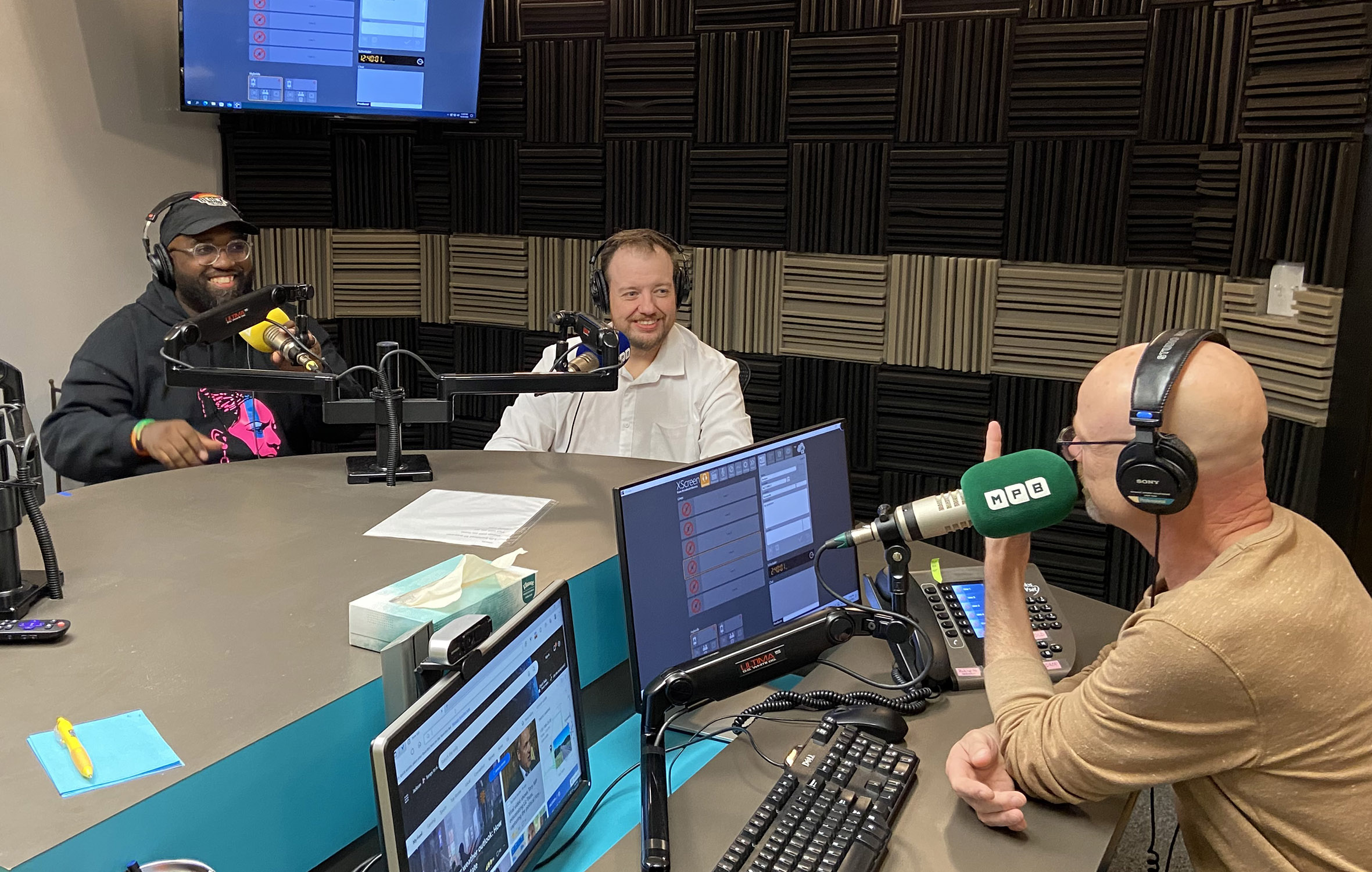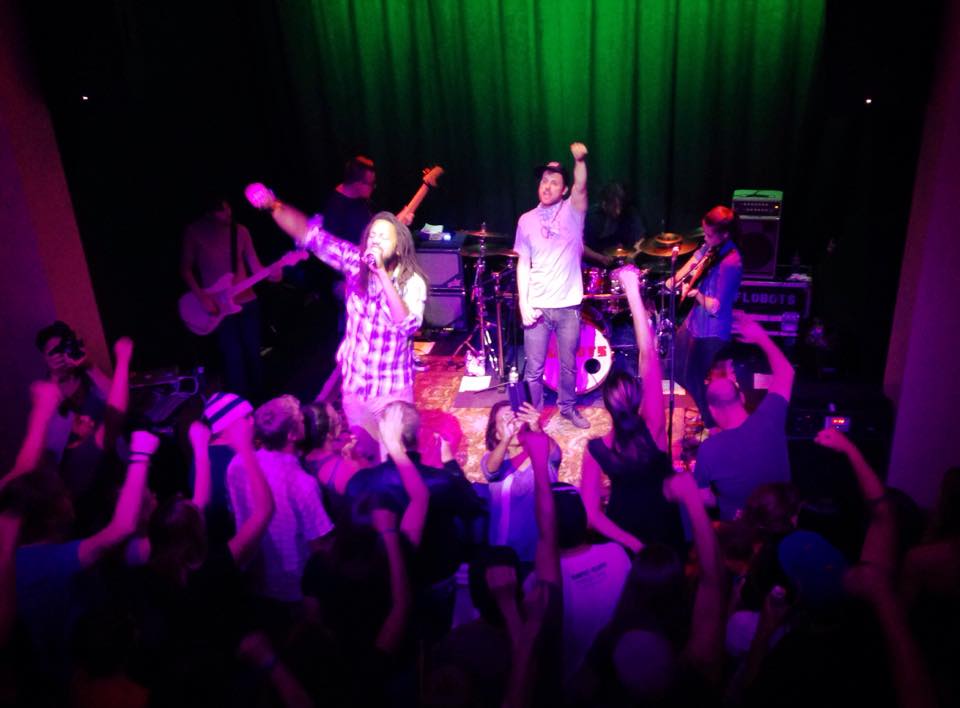
By opening the Sunflower Theater, the Cortez, CO, station and its parent organization, Community Radio Project, have built a rural arts, music, and theater scene from the ground up
Standing in the middle of downtown Cortez, CO, an old sandstone structure erected in the beginning of the 20th century shows off a unique style of the Four Corners region. This charm and history spoke to the Community Radio Project, an organization that now runs rural public radio station KSJD.
When it came up for sale, they leapt at the chance to purchase it, with a grand plan to contribute to the collective effort of transforming downtown Cortez. With this decision came a major capital campaign and organizational restructure to raise the funds, apply for grants, and eventually procure an angel donor who purchased the property and offered a generous rental and buy-back agreement. KSJD and the Community Radio Project aimed to turn this unique space into new broadcast studios and offices for the station, but there was also the issue of a side building grafted onto it–an appendage without much charm, yet a lot of potential. “It was a curious building, was really just kind of a box,” Tom Yonder, programming and media director of KSJD, says of the early planning. “I think Jeff [Pope, executive director at the time], I can’t take credit for it, had this idea of ‘What if we put in a small theater, if we completely gut this whole space?’” The ambition only grew from that. “The ideas started flowing around, ‘Whoa, what if we modeled it after the old opera houses that are across the West in these little towns?’”
The building eventually became just that, with high ceilings, a balcony, stage, 105 seats, and then, a name: The Sunflower Theater. The $1.5 million investment into the bank and theater was a major turning point not only for the Community Radio Project, but also the town itself. “I think the business community and community at large started to see that we were an organization that had vision and that we were going to be something in the community more than just this kind of collection of weirdos that were on the air playing weird music,” Yonder reflects on the transition. “People were like, ‘Oh, this is for real.’” As the staff and community started to think big, a certain kind of back to reality realization happened. “We started to really settle into, well, what are we going to do with this space? What does this all mean?” Yonder laughs. As the space came together, there was also a hope that it could help revitalize the town and encourage a nascent arts scene. It was ambitious, but necessary.
Rural stations have the difficult position of having to cover, preserve, and help shape the arts and culture scenes of wide, disparate areas that might often contain more wildlife than people. For this reason, nonprofit rural stations also face challenges in raising funds to support their service and operations.The Corporation for Public Broadcasting (CPB) provides an essential investment to qualified stations through annual grants, as well as other support like music licensing fees that help stations like KSJD showcase noncommercial music and promote music discovery. Without CPB and annual federal funding to support station grants, rural stations like KSJD would face even more significant financial and operational challenges.
Despite this difficult position, it’s a job that rural stations still do proudly. There’s often also a sense of pride in being in a rural area that people like Yonder have come to respect and internalize as part of the organization’s mission. “There’s a real strong sense of having an independent voice, not being part of the masses. And I think maybe that’s kind of a rural stance a lot of times is ‘we’re not part of the mainstream media’,” Yonder offers as his understanding of the area’s unique viewpoint.
Finding how to best speak to that viewpoint is also a priority for rural stations like Yonder’s. As found in the first report by the Alliance of Rural Public Media, Connecting Communities: The Essential Service of Rural Public Radio, “more than two-thirds of the stations surveyed noted that they offer educational and cultural programming.” KJSD and Community Radio Project are no different. The Sunflower Theater opened in January 2015 with a full calendar of events. “It had some really cool early shows that were really interested in involving the community,” Yonder says of those events, like ones where local high schoolers performed together. It wasn’t all music and arts, with civic-minded programing, like debates for a county commissioner race, where Yonder describes the candidates on the stage, with interviews and with a live audience.
The Sunflower Theater, like all community projects, involved an open dialogue, including some hard conversations about mistakes around an early lack of local talent. “We had convened a group of local musicians to have a focus group sort,” Yonder says about those early back and forth periods. “We had to really own some of those early decisions. And we were really starting to talk about having some local music showcases, doing some not just the same bands playing at the Sunflower Theater, but maybe having some collaboration between bands.” There was always a hope to provide a different kind of space and programming that would really represent a scene from the area. “We do what we want to do. It started off that way and we’ve always maintained that stance of we will do what is right for our community,” Yonder points out.
“Our story and our trajectory has very much been a part of the trajectory and the history of this place and those voices and those people who say, ‘I have something to say, I have something that I’d like to share.’” Yonder says. “For a while we had a little slogan: ‘Independent people, independent voices,’ and I’ve always really liked that. I feel like that kind of encapsulates what KSJD and the Sunflower Theater are up to around here.” For the station, amplifying those people and voices in Cortez through projects like The Sunflower Theater and its local arts and music will always be the most important part of the job.
Other Stories
Marfa Public Radio Fills The Gaps Across A Wide Open Big Bend
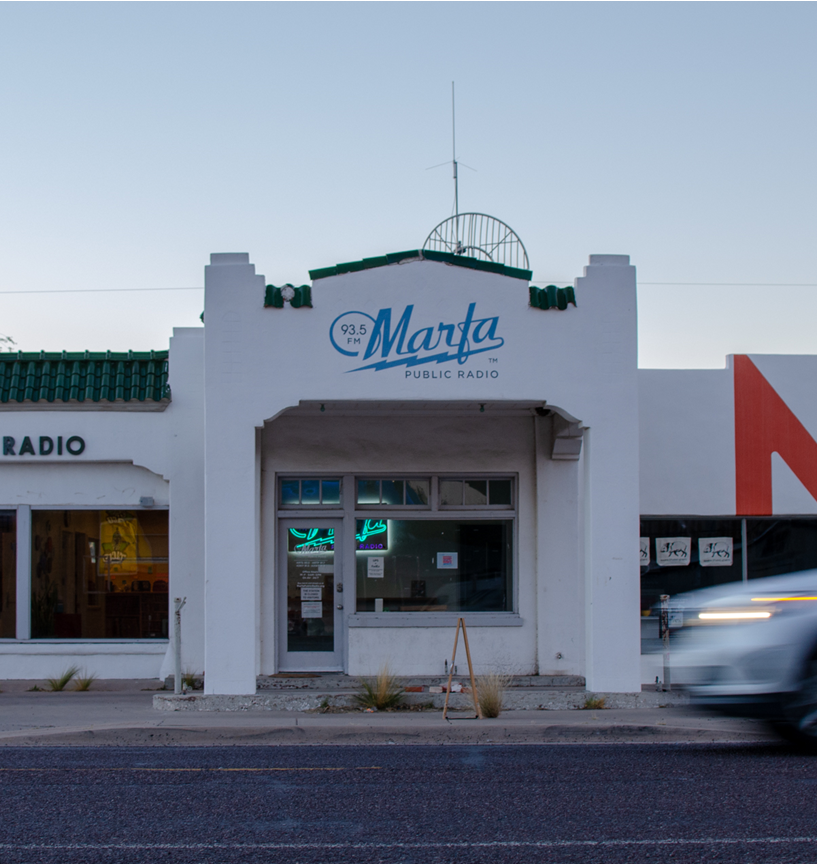
Current: New alliance helps rural stations make a case for more funding, support

North State Public Radio Is Doing Its Part to Build Back A Community After Horrific Wildfires
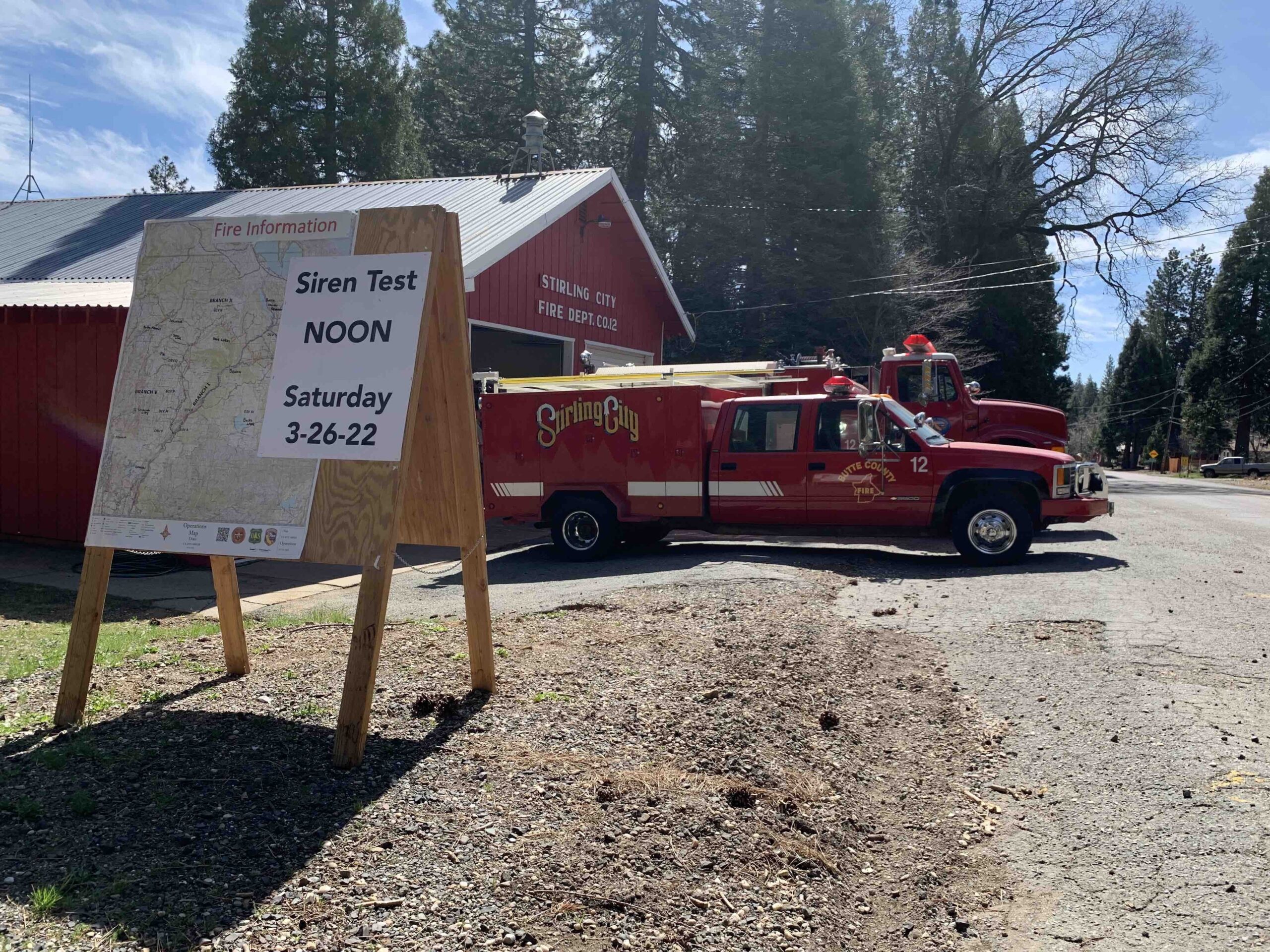
WKMS Reflects On Its Commitment to the Community After A Devastating Series of Tornadoes
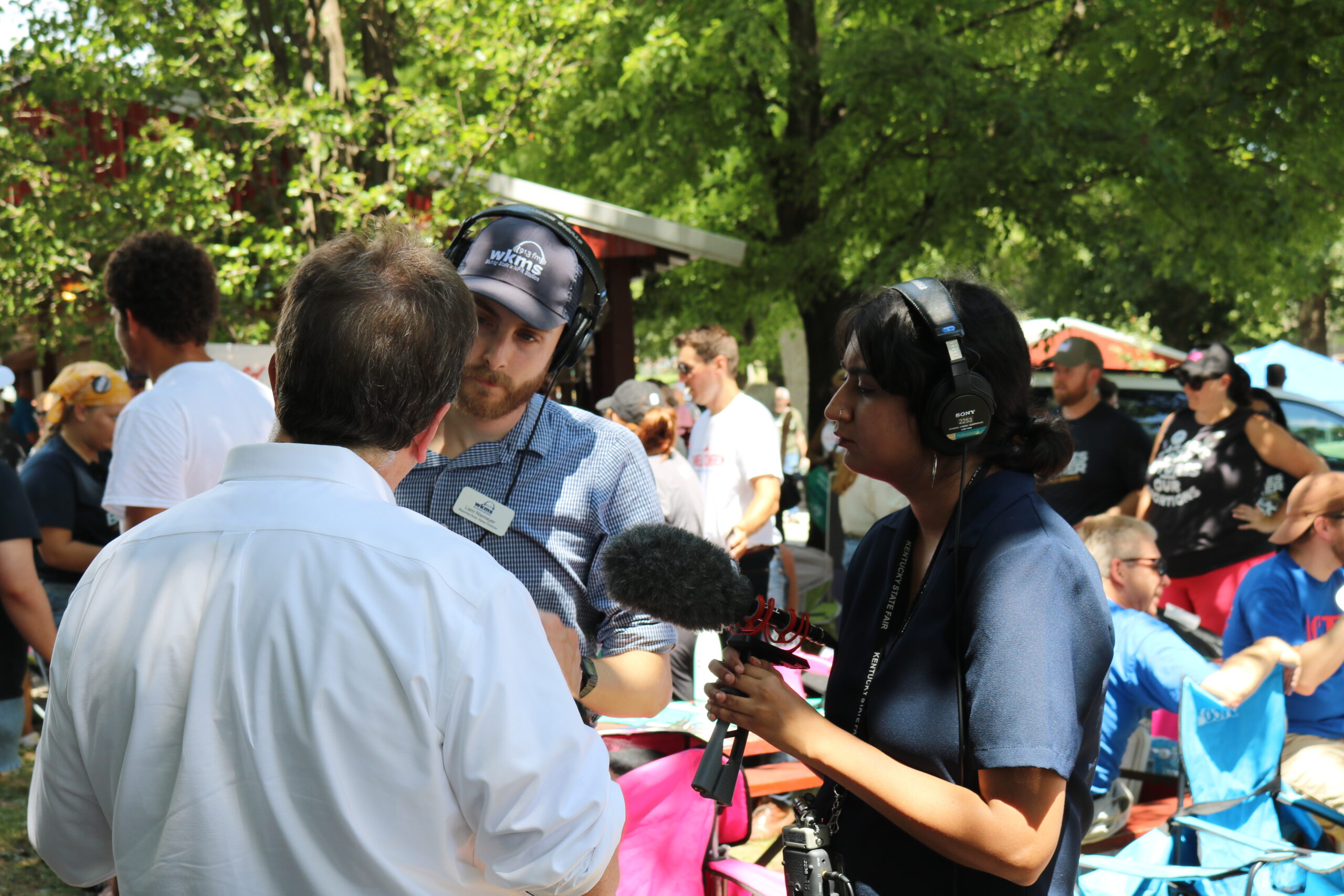
Mississippi Public Broadcasting Is Showing What Exactly Mississippi Radio Is
